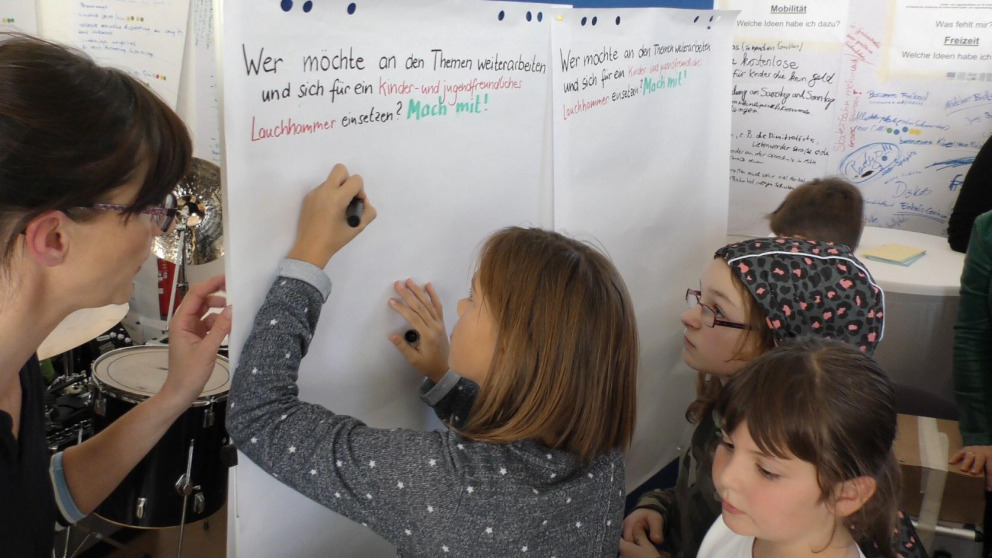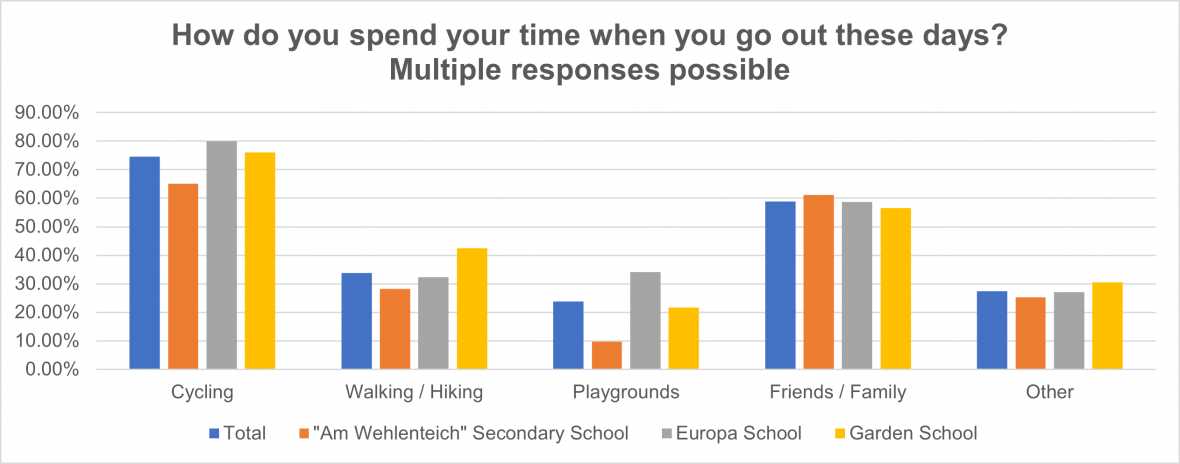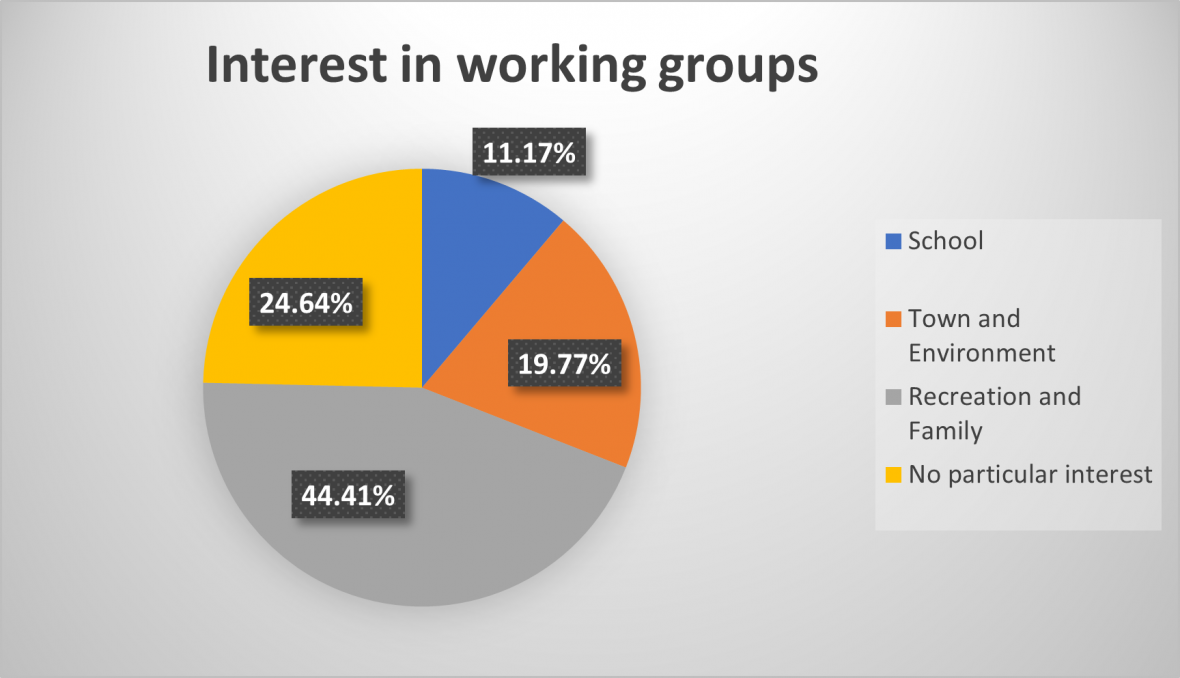Childhood in the Age of Covid-19: Survey Reveals Concerns and Wishes
22.06.2021
The measures imposed to contain the coronavirus pandemic have hit children and young people especially hard, including in the town of Lauchhammer in Brandenburg, Germany. A new survey reveals how children there have fared since the outbreak of the pandemic and sheds light on their experiences and where and how they spent their time. Youth participation around local issues and projects is common in Lauchhammer and the survey also looks at how civic engagement could be jumpstarted again after the pandemic.

350 students from grades 3 to 9 took part in-person in the survey. "It was important for us to explore the needs of children and young people together in the wake of this extended period that was so strongly defined by the pandemic. Our focus is not on supplementing educational services, but on strengthening relationships throughout the community ", explains the head of Lauchhammer’s Office of Education and Cultural Affairs, Manuela von Schroedel-Siemau. Three topics took centre-stage in the survey: What has changed in the lives of children and young people as a result of the pandemic? What activities did they engage in? How would children and young people like to approach participation and civic engagement in this moment? IASS researcher David Löw Beer was the survey’s scientific lead.
Children suffer under contact restrictions
The school pupils described a variety of changes, both negative and positive. Around 60 percent said they were afraid of the coronavirus. They cited the restrictions on contact with other people (24 percent) and the closure of venues and clubs as well as sports and recreation facilities (16.3 percent) as the main negative consequences of the pandemic response. 13.1 percent felt that the impacts of the pandemic were entirely negative. Positive changes noted by respondents included spending more time and enjoying improved relationships with family, friends and pets (14.6 percent).
Some pupils reported experiencing psychological distress, including feeling stressed, clashing with parents, and general mental health problems. Some respondents reported experiencing significant distress, such as this primary school child: “I'm missing out on a lot of my life. I've forgotten how to look forward to things because I've been disappointed every time.” Secondary school students were more likely than younger children to emphasize the positive consequences of the restrictions, especially the increase in free time.
Over 10 percent of respondents lack access to WIFI
Despite the pandemic, pupils reported taking part in different recreational activities. Just under half reported spending roughly equal amounts of time indoors and outdoors. Listening to music and cycling are popular across both age groups. The secondary school students enjoy playing computer games, while primary school pupils prefer handicrafts and painting.


One year into the pandemic, home-schooling remains challenging for many pupils, who are hampered by a lack of technical resources. Local authorities in Lauchhammer supplied devices to all those in need, but roughly 10 per cent of pupils reported that they do not have WiFi at home. Local government is not responsible for ensuring that pupils can access the Internet.
High interest in participation
In 2019, many school pupils took part in the Children’s and Youth Conference in Lauchhammer. Many of those who attended continued this civic engagement in working groups that addressed issues such as “Schools”, “Town and Environment” and “Leisure and Family”. The coronavirus pandemic has limited their ability to continue these activities. It is clear from the pupils' responses that they wish to remain involved in public life. The proper organisation of the meetings and conferences is crucial to ensuring that children and youth engage with these opportunities for participation. The pupils appreciate a welcoming atmosphere in which everyone and anyone can have their say and will be listened to. At all three schools, respondents were most likely to say that they wanted to be involved in the “Leisure and Family" group (44 percent). Pupils were particularly interested in environmental topics.

"The findings of this survey highlight the toll that the pandemic response has taken on children and young people, and the difficult conditions under which many pupils have had to pursue home-schooling activities. It is impressive to see how motivated these children and young people are to contribute to their community. This is clearly due to the enormous efforts of the local government, schools and social workers to support every child and every family," says David Löw Beer, who led the study. Authorities in Lauchhammer will draw on the findings of this study to improve their processes and opportunities for youth participation.
Löw Beer, D. (2021). Kinder und Jugendliche in Lauchhammer während der Corona-Pandemie. IASS Study, Juni 2021
Contact




